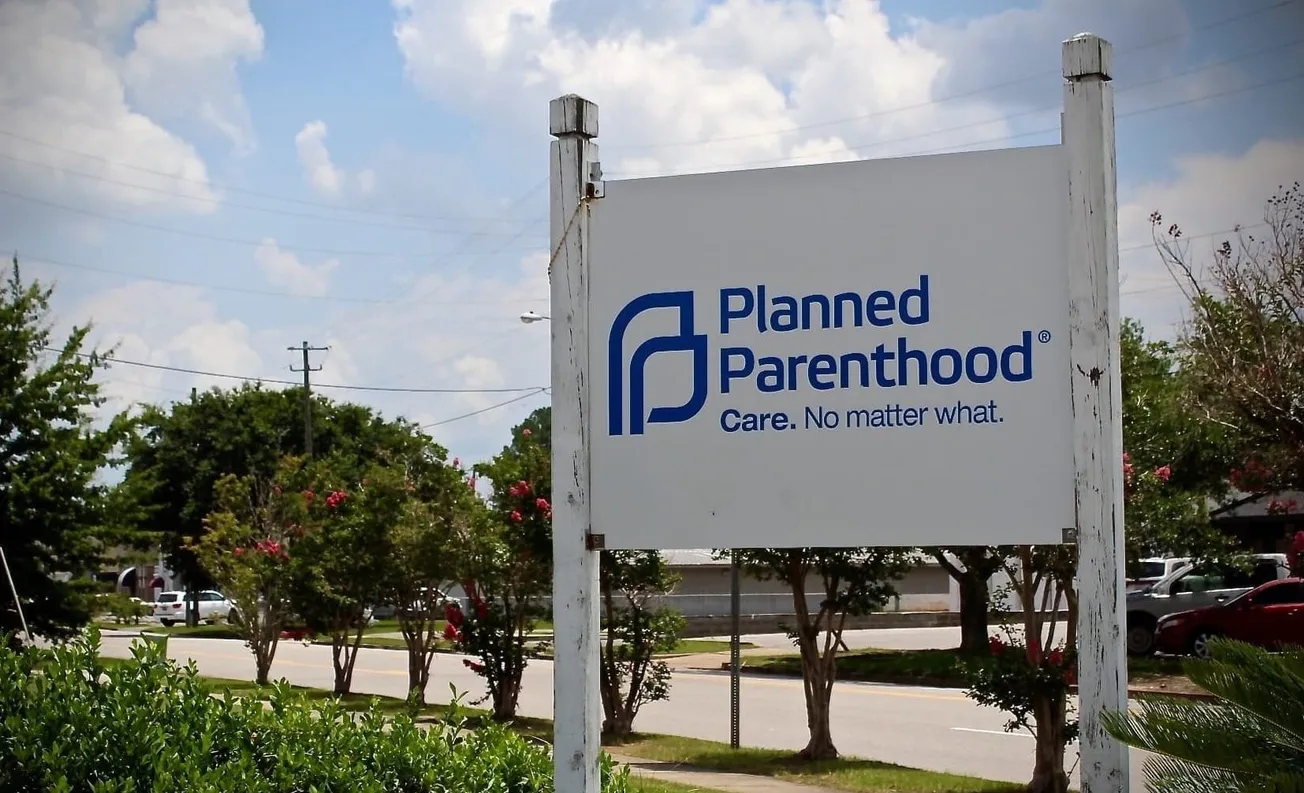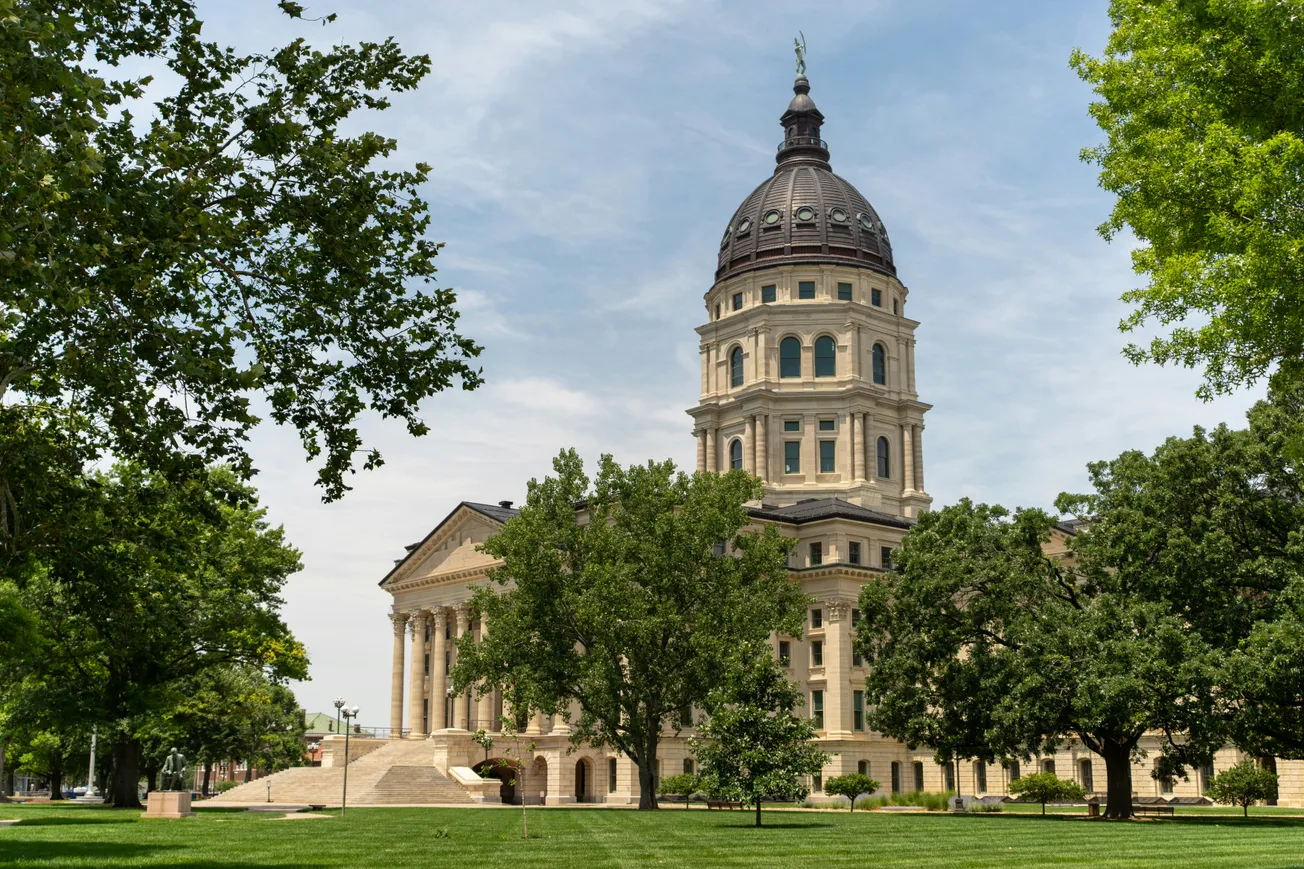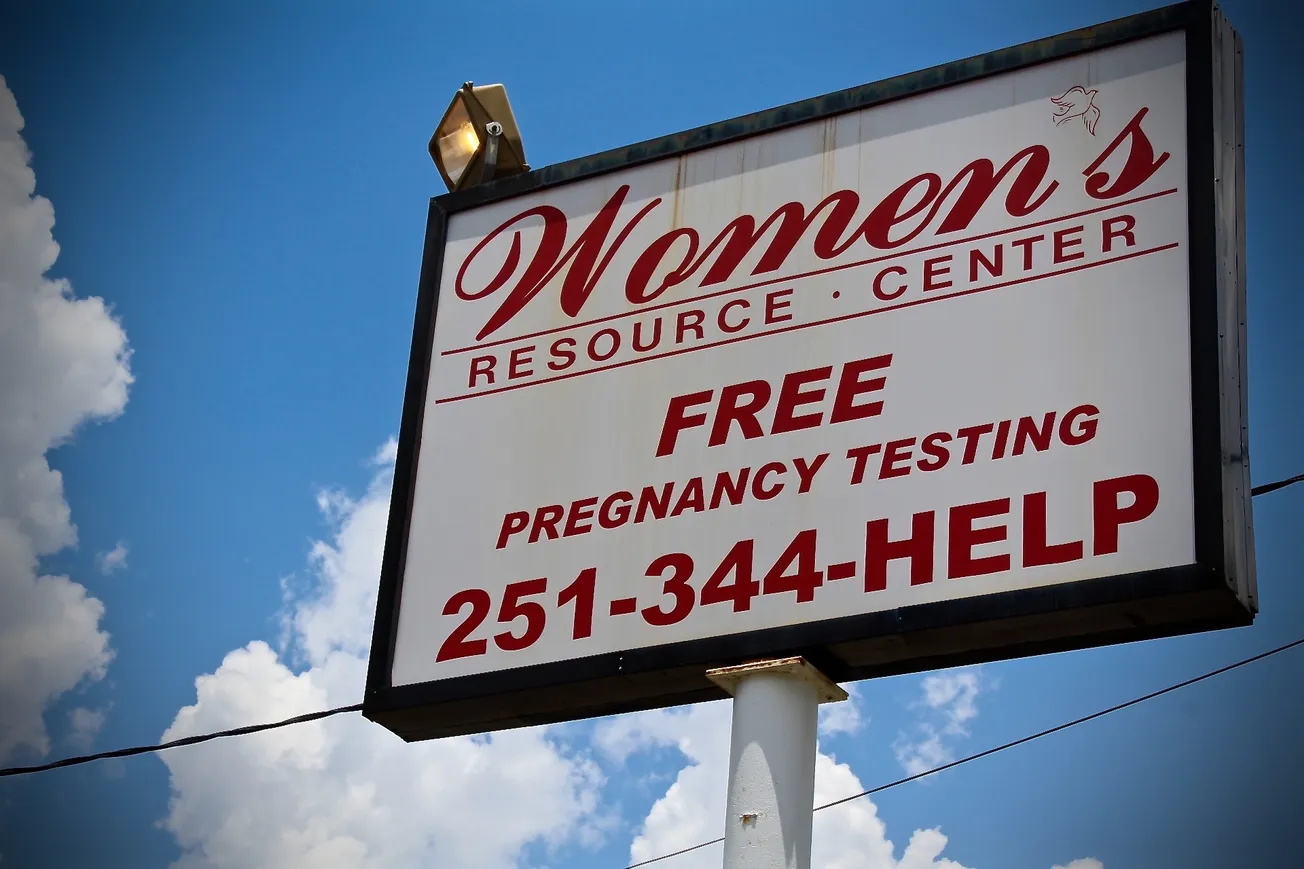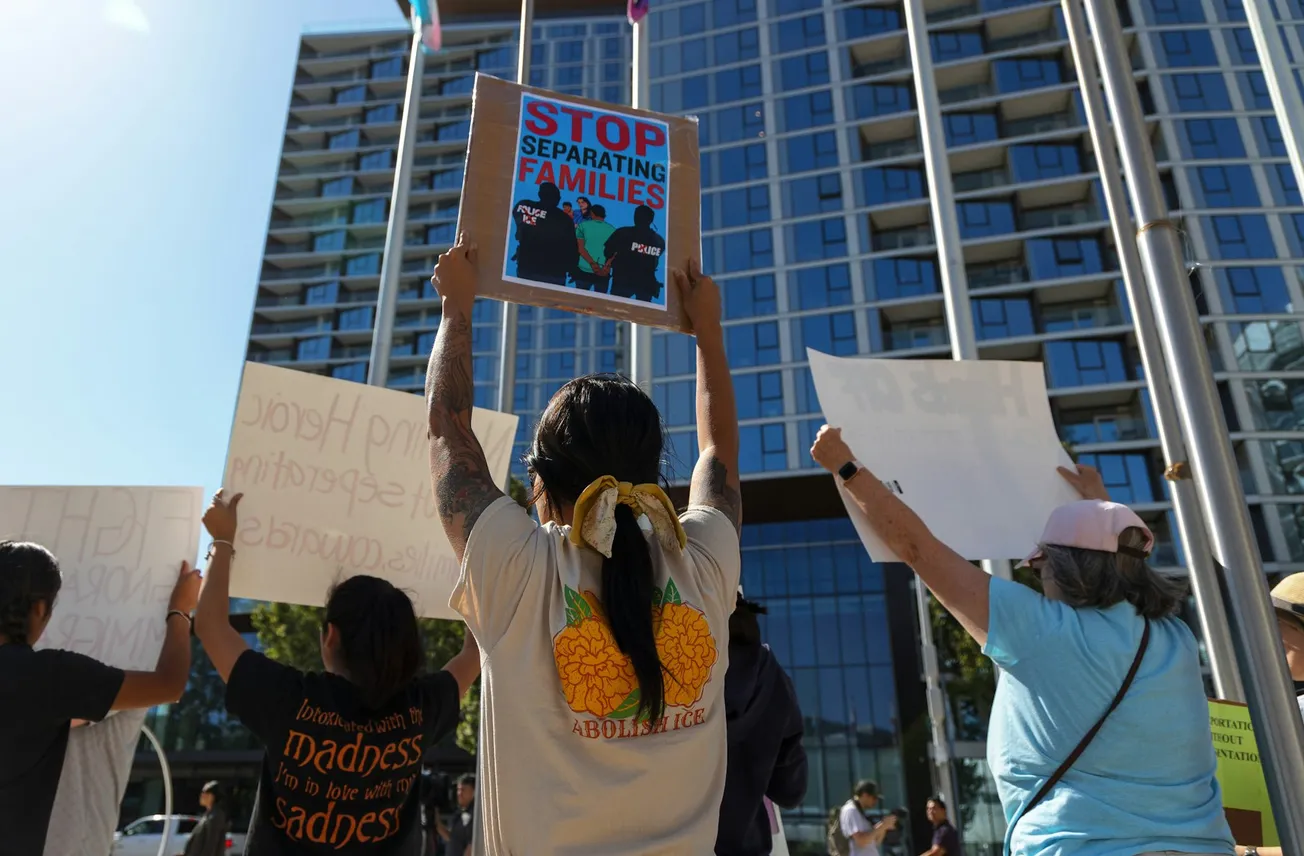“Defund Planned Parenthood” has been a Republican rallying cry for well over a decade. It’s one of the priorities included in the Project 2025 blueprint. And the GOP has gotten closer than ever this year with its “One Big Beautiful Bill,” carefully crafting language to strip Planned Parenthood affiliates of Medicaid funding without ever actually naming the organization in the legislation.
And now, a source with knowledge of the situation tells Autonomy News that Planned Parenthood Federation of America (PPFA) is preparing to let its affiliates make a devil’s bargain: abandon abortion care in an attempt to keep Medicaid funds. On Tuesday morning, the organization's accreditation board informed affiliates that they can apply for waivers that will allow them to cease providing abortions. It would be an astonishing move from the country’s largest abortion provider, and one which could impact abortion access nationwide.
PPFA is already in crisis under the second Trump administration. The White House’s decision to freeze Title X family planning funds to approximately one in five Title X providers nationwide affected all nine Planned Parenthood affiliates that were grantees. Less than halfway through 2025, at least 20 Planned Parenthood clinics have already closed or announced their closure. And with Republicans set on gutting patient eligibility for Medicaid, and a pending Supreme Court decision that may make it easier for states to kick Planned Parenthood out of their Medicaid networks, it’s not clear whether giving up abortion services will ultimately relieve financial pressure on struggling affiliates.
Angela Vasquez-Giroux, vice president of communications at PPFA, said in a statement to Autonomy News that it would be “inappropriate to share the details” of “confidential discussions” between PPFA and its affiliates. She also asserted that it’s “untrue to report that Planned Parenthood would consider ending abortion services,” a claim we did not make.
“There are many potential options we are interrogating to move forward with preserving our Medicaid patients’ access to care, and none of them would result in a voluntary reduction in access to abortion for patients,” Vasquez-Giroux said. “Providing abortion care everywhere it’s still legal is not up for negotiation. We will continue to proudly provide the full range of reproductive health care—including abortion—no matter what.”
However, Vasquez-Giroux did not directly comment on the waivers described to Autonomy News. Asked again whether PPFA had announced the waivers, she said "we cannot divulge our confidential discussions."
Minutes before the deadline Autonomy News gave PPFA for publication, it appears to have sent a statement about the matter to other members of the media in which CEO Alexis McGill Johnson says claims that Planned Parenthood would “stop providing abortion care in the hopes of preserving federal funding” are an “outright lie.” But that statement also carefully steps around the possibility that some affiliates—not Planned Parenthood writ large—could do so. Autonomy News is aware that the New York Times may also be working on a related story.
After the House version of the budget reconciliation bill passed in May, Planned Parenthood warned that, if it became law, 200 of its clinics could close across 24 states—most in states where abortion is still legal. States Newsroom then reported that, in 12 of these states, nearly 75 percent of Planned Parenthood clinics that provide abortions would shutter.
However, on Monday, the Senate Finance Committee released its version of the reconciliation bill—and the text declaring certain abortion providers as entities prohibited from participating in Medicaid was notably different. Namely, there’s now a delay before the new definition of “prohibited entities” takes effect. Such a delay could allow Planned Parenthood affiliates time to halt abortion care in the hopes of preserving Medicaid eligibility, which raises the possibility that PPFA may have been involved in Senate negotiations. Still, the organization called the provision “a backdoor abortion ban” on Monday and claimed that it “mirrored” the House version without acknowledging the significant change. Vasquez-Giroux told Autonomy News that PPFA was not involved in negotiations.
The offices of two Democrats on the Senate Finance Committee confirmed to Autonomy News that Republicans have been working on the bill behind closed doors and Democrats were not involved. A spokesperson for Sen. Ron Wyden (D-Ore.), the committee’s ranking member, said “unfortunately, no intel here as to why [Senate Republicans] made these changes.” A spokesperson for Sen. Tina Smith (D-Minn.) said she wasn’t involved in any negotiations regarding the abortion provision. “As this is a Republican-only reconciliation bill, Republicans did not consult with our office or seek the Senator's input on its language,” they said. “Senator Smith was neither party to nor privy to any discussions related to this.” The office of Sen. Mike Crapo (R-Idaho), who chairs the committee, did not respond to a request for comment.
Since 1977, the Hyde Amendment has prohibited federal funds from being used to pay directly for abortion care except in cases of rape, incest, or to preserve the life of the pregnant person. However, in many states, Planned Parenthood clinics accept Medicaid for other services, such as cancer screenings, birth control prescriptions, STI testing, and vaccinations. Medicaid then reimburses clinics for these services. According to Planned Parenthood, over half the patients who seek essential health services at its clinics have public insurance such as Medicaid.
In the House bill, “prohibited entities” are defined as 501(c)(3) nonprofits that primarily offer reproductive health care, provide abortions outside the the Hyde Amendment exceptions, and received at least $1 million in Medicaid reimbursements in Fiscal Year 2024. Many Planned Parenthood affiliates meet these criteria. (So do some independent abortion providers, meaning those not affiliated with Planned Parenthood.)
According to the House's version, the government would consider a health care provider a prohibited entity if it meets these criteria "as of the date of enactment of this Act." The Senate version, on the other hand, sets a different deadline: "as of the first day of the first quarter beginning after the date of enactment of this Act." In other words, rather than immediately becoming ineligible for Medicaid once the bill becomes law, clinics would have some time to cease abortion services for affiliates to preserve their eligibility.
And rather than a threshold of $1 million in Medicaid reimbursements in Fiscal Year 2024, the Senate version would lower the bar to $800,000 in Medicaid reimbursements in FY 2023, potentially making even more clinics ineligible for Medicaid funds.
PPFA is a network of regional affiliates, each of which tends to have multiple clinics. In this structure, each affiliate is its own independent legal and financial entity, but it has to meet certain accreditation standards in order to be part of the national federation. (The federation includes around 600 clinics across 48 states.)
Currently, at least one clinic within each affiliate has to provide abortion care, which PPFA considers a “core service,” assuming it's legal. This may not be the case for much longer if affiliates apply for abortion waivers. According to the source, a second new waiver is also available, which would allow affiliates to advertise their services in another affiliate’s area. Typically, Planned Parenthood affiliates adhere to strict territorial boundaries and are not allowed to do anything that might be seen as competition. This move appears to be part of a plan to allow some affiliates to cease providing abortion services, while others continue—forfeiting Medicaid eligibility in the process—and advertise abortion services to patients in the regions of affiliates that halted the care.
Similar language about “defunding” Planned Parenthood was included in a 2017 reconciliation bill, which was ultimately defeated. The budget reconciliation process is supposed to be narrow, and only used to address essential government spending; such bills only need 50 votes. Any provision limiting funding to abortion providers, however, should be subject to a 60-vote threshold in the Senate thanks to the “Byrd rule,” which allows Senators to raise objections to “extraneous” items in reconciliation bills. Overcoming this type of objection requires a three-fifths supermajority. Senators can also ask the parliamentarian to evaluate the reconciliation bill and give an official opinion on whether certain items belong there. But the Senate recently overruled the parliamentarian to revoke two waivers that had allowed California to set tougher-than-national emission restrictions and passed the bill with 51 votes. Planned Parenthood’s new waivers suggest it’s preparing for the possibility that the bill could pass the Senate.
According to I Need an A, which provides information about abortion providers, funds, and other services updated daily, at least 105 abortion clinics have closed nationwide since the Supreme Court’s Dobbs decision in 2022. Any further loss of abortion providers would be a stunning blow with ripple effects across the health care landscape.
This story was copy edited and fact checked by Hannah Rappleye.









